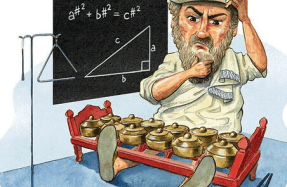
Romantic Piano Masters
Music by Franck, Thalberg, Liszt, Chopin, Schubert
Mariam Batsashvili (piano)
Warner Classics 9029629061 67:19 mins
In this glorious record, Mariam Batsashvili has matched a series of Liszt’s operatic ‘paraphrases’ with transcriptions from other composers; her purpose is to highlight their excellence, and also the contrasts between them. Such contrasts would have set the keynote, for example, in the celebrated piano duel between Liszt and Sigismond Thalberg in the Paris salon of Countess Cristina Belgiojoso in 1837.
And as this young Georgian pianist points out, pitting Liszt’s transcription of extracts from two scenes in Gounod’s Faust against Thalberg’s Caprice on arias from Bellini’s La sonnambula does show up how differing in their approaches the two virtuosos were. Thalberg’s has moments of magnificence, but its pianistic effects are conventional; pervaded by its Mephistophelean leitmotif, Liszt’s ‘paraphrase’ is infinitely more dramatic, as well as being astonishingly inventive in technique. Both are delivered with Batsashvili’s trademark expressiveness and finely calibrated control, and in the Liszt she finds a way to let her sound unfurl like an opening flower.
Batsashvili finds a way to let her sound unfurl like a flower
Batsashvili says in Liszt’s Schubert transcriptions she has been much influenced by Dietrich Fischer-Dieskau’s refusal to over-romanticise the songs, and she follows that principle in her playing. She gives us a convivial ‘Ständchen’, and a poignant melange of pleasure and pain in ‘Aufenthalt’. The most intriguing track is her account of Liszt’s seldom-performed , fleetingly seductive and disappearing like a will o’ the wisp. To bung a Chopin waltz into this programme is strange,




